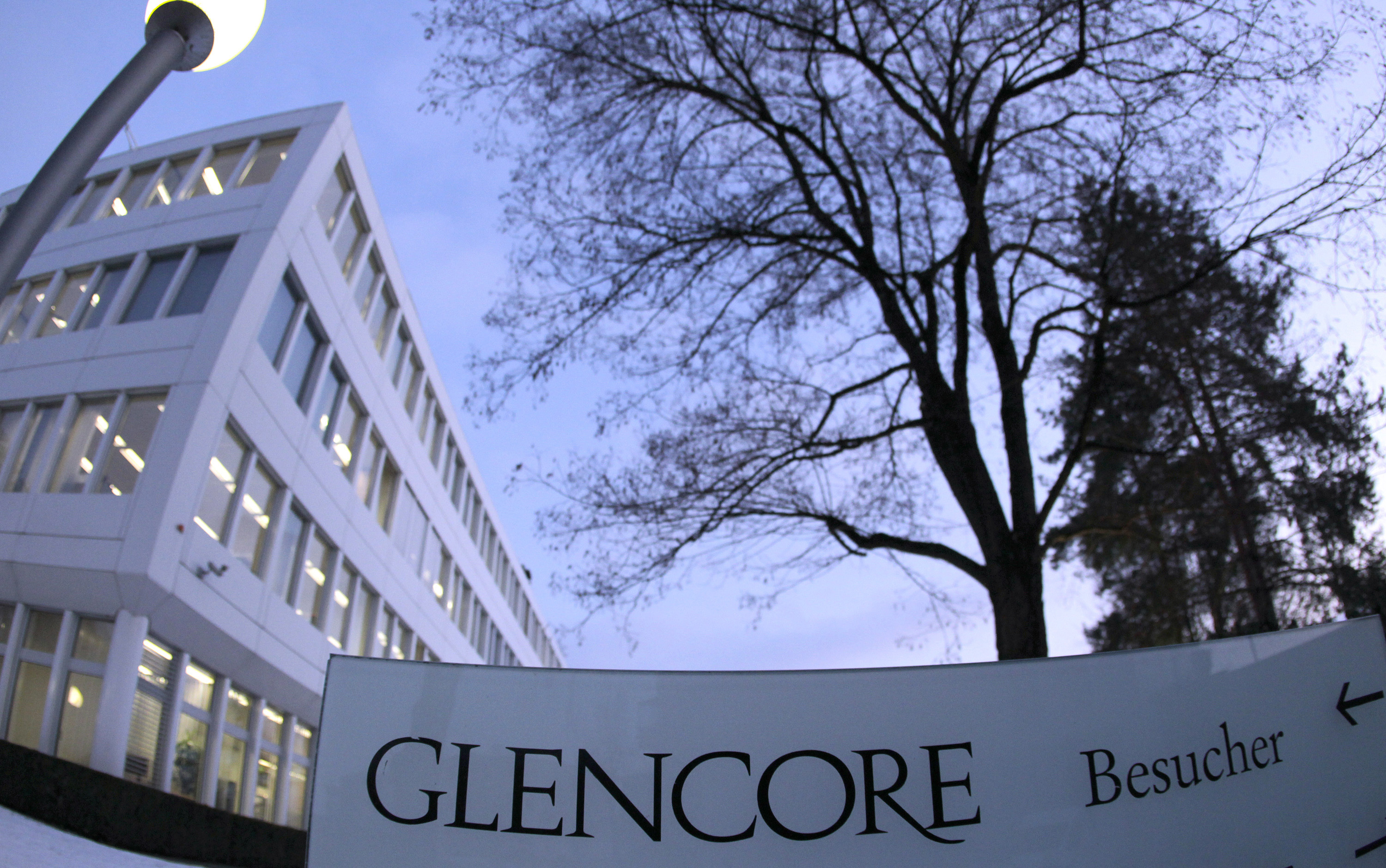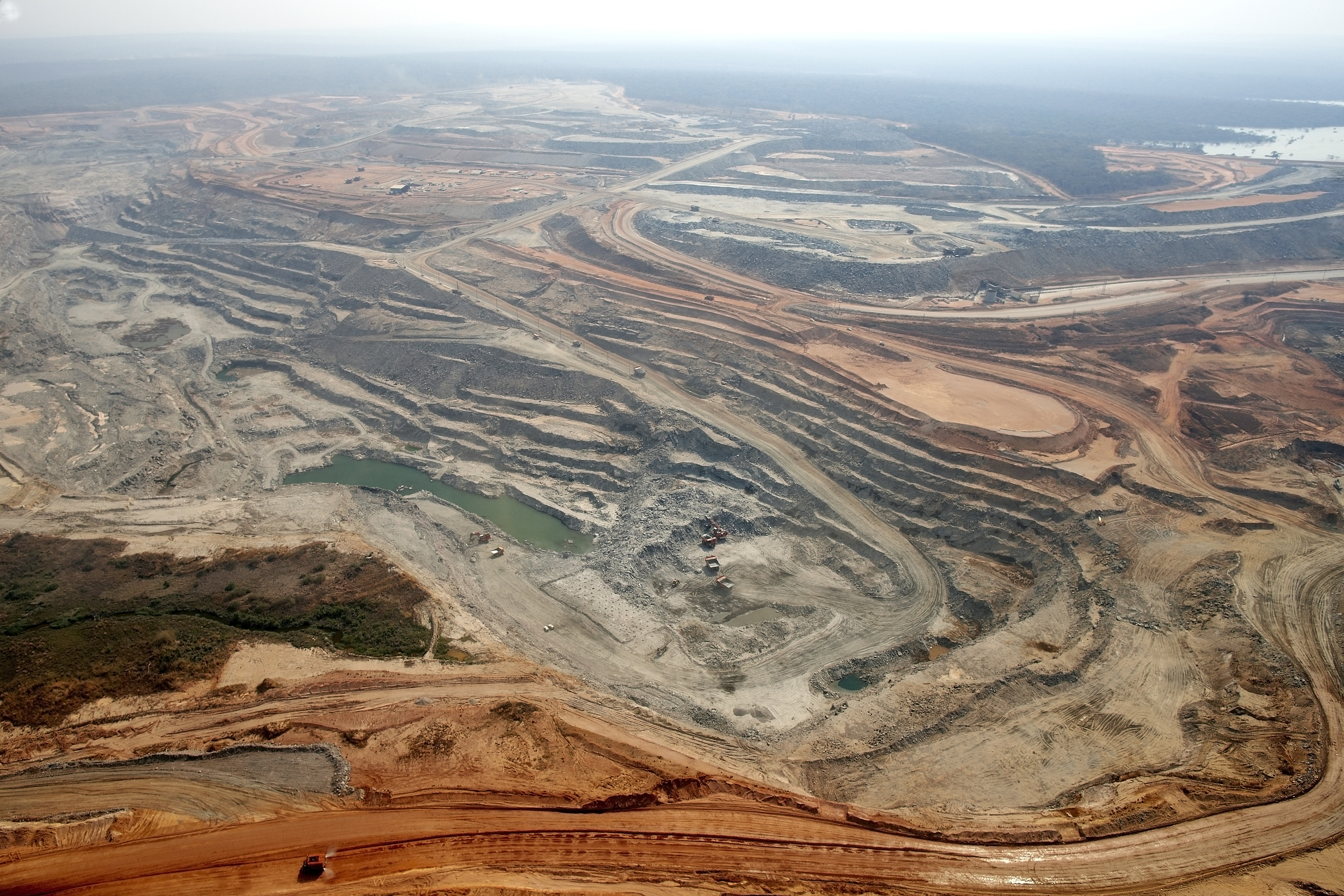Pressure grows to defuse commodities ‘time bomb’

Switzerland is facing pressure to tighten up regulations on its fast-growing raw materials trading sector. The authorities and campaigners agree Swiss-based firms pose a potential risk to its image but appear at odds over what to do.
Switzerland’s commodities sector has grown spectacularly over the past decade, largely unchecked and out of the public eye. It now represents close to 3.5 per cent of gross national product, more than the machine and tourism industries.
But critics say the high concentration of trading and extractive firms in Switzerland, such as Glencore, Xstrata and Trafigura, has brought with it additional risks and responsibilities.
“I feel we are sitting on a ticking time bomb,” former Swiss parliamentarian Dick Marty told a conference on business and human rights, organised by the Swiss foreign ministry on September 11.
The prosecutor is a supporter of a campaign demanding clear legal rules to force Swiss-based firms to observe human rights and environmental standards worldwide.
“Boards of directors of firms headquartered in Switzerland should be responsible for their subsidiaries’ activities. Also, victims of human rights or environmental disasters who live in countries with ineffective legal systems should be able to seek redress against firms before Swiss courts,” Marty told swissinfo.ch.
The “Corporate Justice” campaign, backed by an alliance of 50 non-governmental groups, in June handed over a petition to the federal authorities signed by 135,285 people. They point to problematic cases involving Glencore subsidiaries in the Democratic Republic of the Congo and those of Xstrata in Peru and Argentina, among others.
National concerns
“It’s a controversial area where things are moving internationally and this is generating fears at the national level,” explained conference organiser Claude Wild, head of the human security division at the foreign ministry.
“We want a Swiss trading industry that is both clean and transparent.”
Over the past year numerous parliamentary questions have been raised urging the government to outline its position on the potential risks and long-term strategy.
In the most recent written reply on August 15, the government said it was aware that accusations of rights abuses linked to mining activities in developing nations could, if justified, be a risk to Switzerland’s reputation and be “contradictory to our international commitment to human and environmental rights”.
Voluntary initiatives
But rather than binding rules, up to now the Swiss authorities have preferred voluntary responsible business initiatives. They currently support multi-stakeholder schemes such as the Organisation for Economic Co-operation and Development (OECD) guidelines for multinationals, the Voluntary Principles on Security and Human Rights and the United Nations Guiding Principles on Human Rights and Business, adopted by consensus by the UN Human Rights Council in June 2011.
Countries such as the United States, Britain, Germany and the Netherlands have already begun work on national action plans to implement the UN principles and are grappling with issues like ‘thresholds of reasonableness’ – how much and what kind of human rights due diligence is enough.
“We hope this will also be the case here in Switzerland,” John Morrison, executive director of the Institute for Human Rights and Business, told the conference.
In May the cabinet set up an inter-governmental working group, restricted to members of the foreign, economic and finance ministries, in order to prepare a report on the commodities sector. At the same time the economics and foreign ministries began talks on how the UN principles could be introduced in Switzerland.
Blockages
Campaigners have mixed feelings about what may happen.
“I’m quite hopeful. There is a growing awareness among the administration of the potential problems and no one wants it to explode in Switzerland’s face like banking secrecy,” said Lorenz Kummer from Swissaid.
Chantal Peyer from the NGO Bread for All said the existence of the two working groups was positive.
“But the government is reactive. There is no public information or terms of reference. What will be done with the report? What is the objective?” she pondered. “The whole process is blocked internally as neither the employers’ associations nor the State Secretariat for Economic Affairs (Seco) want to have a real debate. What’s sad is that the foreign ministry gave a lot of support to the work of UN Special Representative on Business and Human Rights John Ruggie.”
As to firms like Glencore, “they don’t understand what the principles mean and have no time or intention in the short term to worry about them”, she added.
Switzerland may soon find itself overtaken by events as external pressure builds, however. In August the US Securities and Exchange Commission (SEC) adopted tough mandatory financial disclosure standards that apply to US-registered companies with overseas mining and petroleum operations.
The European Union looks set to follow suit later this year, which could leave Switzerland isolated.
“The danger is that we will only react when there is a real disaster, like we did with the Holocaust victims settlement affair, the crash of Swissair or the UBS scandal. For all these disasters we had early-warning signs and we ignored them. This time Switzerland has a big chance to show the way, but it needs to be creative and courageous,” said Marty.
Swiss towns such as Winterthur, Lucerne and Lausanne have a long tradition of trading in commodities such as cotton or coffee, cashing in on Switzerland’s central European location.
The Winterthur-based Volkart Brothers company established a highly successful cotton, coffee and spice trading operation in Sri Lanka and India in 1857. The Union Trading Company of Basel was one of the early traders of cocoa beans.
After the two world wars, commodities traders started looking more closely at neutral Switzerland whose economy and political structure had survived the conflicts unscathed.
The first grain trading houses appeared in Geneva in the 1920s while Switzerland offered a neutral venue for US companies to engage in trade with eastern bloc countries during the Cold War.
Geneva’s popularity as a destination for Middle Eastern travellers gave the city an edge as the oil industry started booming in the region. Oil traders were joined by cotton merchants escaping from Egypt in the 1960s.
Russian oil concerns followed in the 1990s, establishing a commodities industry in Zug.
Some of the biggest raw materials traders and extractive firms now based in Switzerland include Glencore, Xstrata, Trafigura, Vitol, Gunvor, Litasco, Mercuria, ADM, Bunge, Cargill, Dreyfus, Holcim and the Kolmar Group.

In compliance with the JTI standards
More: SWI swissinfo.ch certified by the Journalism Trust Initiative






You can find an overview of ongoing debates with our journalists here. Please join us!
If you want to start a conversation about a topic raised in this article or want to report factual errors, email us at english@swissinfo.ch.